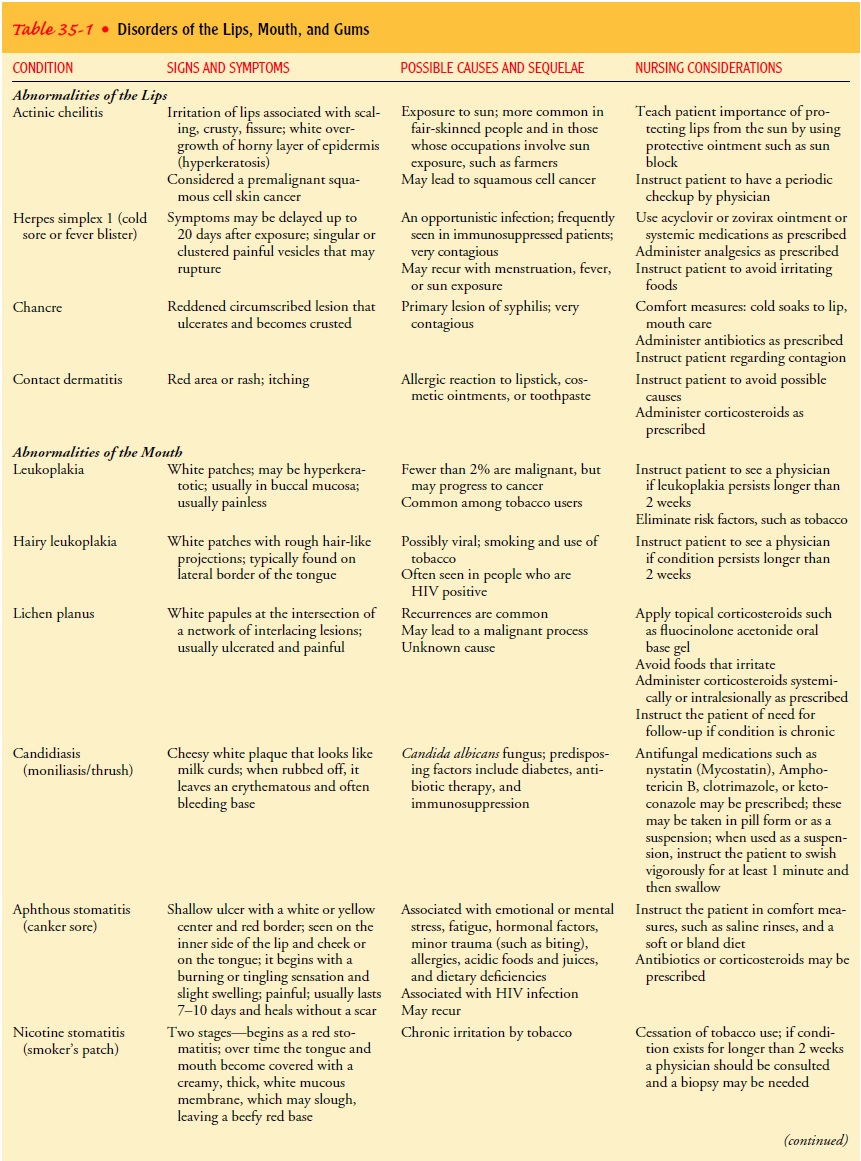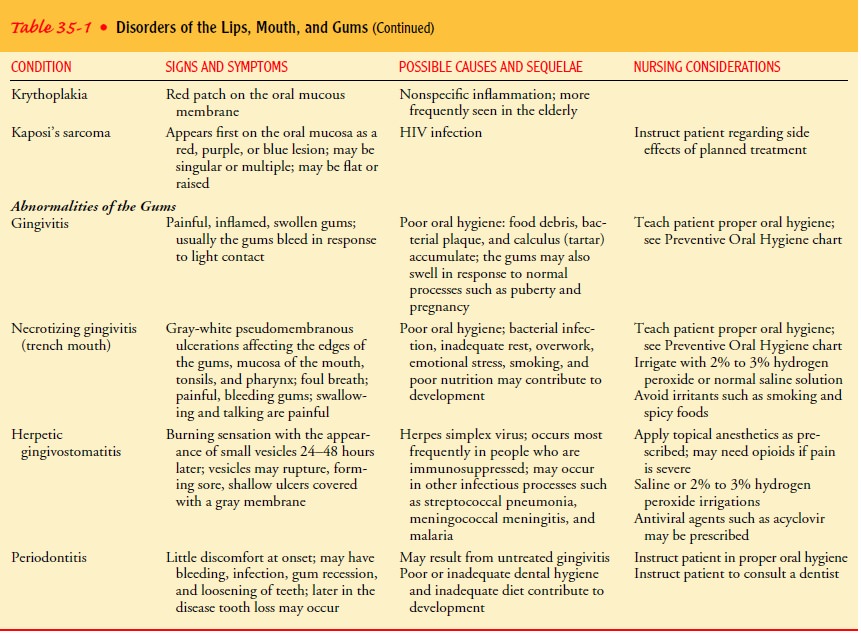Chapter: Medical Surgical Nursing: Management of Patients With Oral and Esophageal Disorders
Management of Patients With Oral and Esophageal Disorders
Management
of Patients With Oral and Esophageal Disorders
Because
digestion normally begins in the mouth, adequate nutrition is related to good
dental health and the general condition of the mouth. Any discomfort or adverse
condition in the oral cavity can affect a person’s nutritional status. Changes
in the oral cavity may influence the type and amount of food ingested as well
as the degree to which food particles are properly mixed with salivary enzymes.
Disease of the mouth or tongue can interfere withspeech and thus affect
communication and self-image. Esophageal problems related to swallowing can
also adversely affect food and fluid intake, thereby jeopardizing general
health and well-being.Given the close relationship between adequate nutritional
intake and the structures of the upper gastrointestinal tract (lips,
mouth,teeth, pharynx, esophagus), health teaching can help prevent disorders
associated with these structures.


The
oral cavity, which includes the lips, mouth, and gums, is subject to many disorders
and diseases. Table 35-1 reviews common abnormalities, their possible causes,
and nursing management. As identified in a report by the U.S. Surgeon General
in 2000, oral health is a very important component of a person’s physical and
psychological sense of well-being. Severe periodontal disease affects
approximately 14% of adults 45 to 64 years of age and 23% of adults 65 to 74
years of age (US Department of Health and Human Services, 2000).
Related Topics